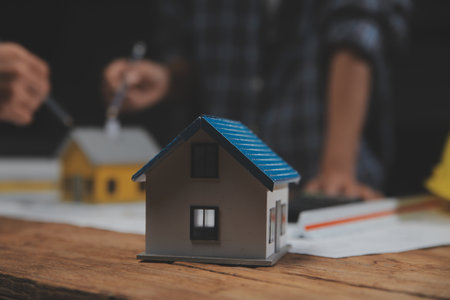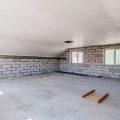1. Understanding the Purpose of Open Houses and Home Tours
If youre a first-time homebuyer, walking into your first open house or scheduling a private home tour can be both exciting and overwhelming. These experiences aren’t just about looking at pretty homes — they play a key role in helping you make smart decisions during your homebuying journey.
What Is an Open House?
An open house is a scheduled time when a home is open to anyone who wants to walk through it, usually on weekends. It’s hosted by the seller’s real estate agent and doesn’t require an appointment. This gives potential buyers a chance to casually view the property without pressure.
What Is a Private Home Tour?
A private home tour is a one-on-one showing arranged by your real estate agent. You’ll schedule a time that works for you, and your agent will give you a personal walkthrough of the home. This setting allows for more detailed questions and time to think things through.
Why These Are Important for First-Time Buyers
Open houses and private tours help you get a feel for what’s available in your price range, compare features, and understand what truly matters to you in a home. Theyre also great opportunities to observe neighborhood vibes, home conditions, layouts, and even how much natural light different rooms receive.
Key Differences Between Open Houses and Private Tours
| Feature | Open House | Private Tour |
|---|---|---|
| Schedule | Fixed date & time (usually weekends) | Flexible – based on your availability |
| Privacy | Shared with other visitors | One-on-one experience |
| Time Allowed | Limited – self-guided or brief interactions | More time to explore in detail |
| Questions & Answers | General info from listing agent | Your agent can ask specific questions for you |
Tip for First-Time Buyers:
Use open houses to explore different neighborhoods and see multiple homes in one day. Then, schedule private tours for homes youre seriously considering so you can take a closer look before making an offer.
Understanding these two types of showings helps you make the most of every visit, stay organized, and move forward with confidence as you search for your first home.
2. What to Look For During a Walkthrough
Walking through a home for the first time can be exciting, but its also your chance to look closely at details that might not be visible in photos. From structural elements to neighborhood noise, knowing what to look for helps you make smart choices before making an offer.
🔍 Key Features to Pay Attention To
As you move from room to room, keep an eye out for these important aspects of the home:
| Feature | What to Look For | Why It Matters |
|---|---|---|
| Foundation & Structure | Cracks in walls or ceilings, sloping floors | May signal serious structural issues that require costly repairs |
| Roof & Ceiling | Water stains, missing shingles, sagging areas | Could indicate leaks or aging roof needing replacement |
| Windows & Doors | Difficulty opening/closing, drafts, foggy glass | Poor insulation and energy inefficiency could increase bills |
| Plumbing System | Low water pressure, rusty water, leaky faucets | Might point to old pipes or plumbing problems |
| Electrical Outlets & Lighting | Flickering lights, outdated panels, non-working outlets | A safety concern and potentially expensive upgrade |
🚨 Red Flags You Shouldnt Ignore
Certain warning signs during a walkthrough can indicate bigger problems down the road. Watch out for:
- Mold or musty smells: Could mean moisture issues or hidden leaks.
- Pest droppings or damage: Termites and rodents can cause serious property damage.
- Fresh paint in isolated spots: Might be covering up damage like water stains or cracks.
- Noisy surroundings: Listen for traffic sounds, barking dogs, or other neighborhood disturbances.
- Lack of natural light: Poor lighting can affect your mood and energy bills.
🏘️ Neighborhood Factors to Consider
The home is just part of the equation—you’re also buying into a neighborhood. Take some time during your visit to notice:
- Street activity: Are there families walking around? Too much traffic?
- Noises: Can you hear trains, planes, or nearby highways?
- Pride of ownership: Are yards well-maintained? Do neighboring homes look cared for?
- Amenities nearby: Check proximity to grocery stores, schools, parks, and public transit.
📝 Bring a Checklist With You
You don’t have to memorize everything—bring a checklist on paper or your phone. Here’s a sample format you can use:
| Item to Check | Status (Good/Fair/Poor) | Your Notes |
|---|---|---|
| Roof Condition | ||
| Windows & Doors | ||
| Water Pressure / Plumbing | ||
| Noises Inside/Outside Home | ||
| Nighborhood Appearance & Vibe |
This kind of organized approach ensures you don’t overlook anything important while touring potential homes.

3. Questions to Ask the Agent or Seller
When youre touring homes as a first-time buyer, its easy to get caught up in the excitement of new countertops and freshly painted walls. But don’t forget—this is your chance to gather important information about the home that might not be visible at first glance. Asking the right questions can help you avoid surprises down the road and give you a clearer picture of what youre potentially buying.
Why Asking Questions Matters
Real estate agents and sellers are your key sources of information during a home tour. While they may provide brochures or listing details, asking specific questions helps you dig deeper into the property’s history, condition, and any possible red flags.
Important Questions to Ask During a Home Tour
Here’s a list of essential questions to bring with you when attending open houses or private showings:
| Category | Questions to Ask |
|---|---|
| Property Condition | – How old is the roof? – Have there been any recent repairs or renovations? – Are there any known issues with the plumbing, electrical, or HVAC systems? |
| History & Disclosures | – Has the home had any past water damage or mold problems? – Has the property ever been involved in a fire or flood? – Are there any ongoing insurance claims? |
| Ownership & Use | – How long has the seller owned the home? – Why are they selling? – Are there any liens or legal issues associated with the property? |
| Neighborhood & Local Factors | – What are the average utility costs for this home? – Are there any upcoming developments nearby? – How is traffic and noise in the area? |
| HOA (if applicable) | – Is there a homeowners association? – What are the monthly fees and what do they cover? – Are there any restrictions on rentals or exterior changes? |
Tips for Getting Honest Answers
- Be polite but direct: Agents and sellers expect questions—it shows youre serious.
- Takes notes: You’ll likely visit multiple homes, so jotting down answers can help you compare later.
- If something sounds vague, ask for clarification: For example, “What do you mean by ‘minor repairs’?”
- You can request documentation: If a renovation was done, ask for permits or receipts.
The Bottom Line: Knowledge Is Power
The more informed you are during a tour, the more confident youll be when it’s time to make an offer. Don’t hesitate to speak up—every question you ask brings you one step closer to finding the right home for you.
4. Open House Etiquette and Best Practices
When youre attending an open house as a first-time homebuyer, its important to know there are certain unspoken rules that can help you make a great impression and avoid common mistakes. Understanding these simple etiquette tips will also show respect for the homeowner and the real estate agent hosting the event.
Respect Private Property
Remember, you’re walking through someone’s current home or a newly staged property. Always treat it with care. Here are a few basic dos and don’ts:
| Do | Dont |
|---|---|
| Ask before taking photos or videos | Open drawers, closets, or cabinets without permission |
| Remove your shoes if requested | Snoop through personal items or closed-off rooms |
| Use provided walkways and avoid stepping on carpets or rugs unnecessarily | Bring food or drinks into the home |
Interact Politely with Sellers and Agents
If the seller is present, be polite but not overly inquisitive. Keep your comments neutral—avoid pointing out flaws in front of them. Focus more on asking the listing agent questions about the property’s features, neighborhood, and any recent upgrades.
Smart Questions to Ask:
- “How long has the property been on the market?”
- “Are there any offers already submitted?”
- “What’s included in the sale (appliances, fixtures, etc.)?”
Avoid Overstaying Your Welcome
An open house isn’t the time for a full inspection. If you’re seriously interested in the home, your agent can schedule a private tour later. Plan to spend 15–30 minutes walking through and making notes.
Manners Matter
A smile and a thank-you go a long way. Greet the host when you arrive, sign in if asked, and say goodbye when leaving. These small gestures leave a positive impression—and could even help if multiple offers come in on the same home.
Being courteous and respectful during open houses shows that youre a serious buyer who values others time and space. It sets the tone for smoother interactions throughout your home buying journey.
5. Next Steps After the Tour
Once youve toured a few homes or attended several open houses, it’s time to reflect on what you’ve seen and decide how to move forward. Whether youre still browsing or ready to make an offer, knowing your next steps will help you stay organized and confident in your home buying journey.
Evaluate Each Home You Visited
Right after each tour, take a few minutes to jot down your impressions while they’re still fresh. Ask yourself:
- Did the home meet my needs and wants?
- Was I comfortable in the neighborhood?
- Were there any red flags, like strange odors, water damage, or noisy surroundings?
- How did I feel walking through the home—excited, unsure, disappointed?
Use a Comparison Chart
If you’ve seen multiple homes, it can be easy to forget details. Use a simple comparison chart to keep track of key features and how each home stacks up.
| Feature | Home A | Home B | Home C |
|---|---|---|---|
| Price | $350,000 | $365,000 | $345,000 |
| Location/Commute | 20 mins to work | 35 mins to work | 15 mins to work |
| School District | A-rated | B-rated | A-rated |
| Overall Condition | Move-in ready | Needs updates | Newly renovated |
| Your Rating (1-10) | 8 | 6 | 9 |
Decide: Make an Offer or Keep Looking?
If You’re Ready to Make an Offer:
- Talk to Your Agent: Discuss a fair offer price based on recent sales in the area.
- Review Seller Disclosures: Look for any issues that might affect your decision.
- Get Pre-Approval Ready: If you haven’t already, make sure your financing is lined up.
If You’re Not Ready Yet:
- Narrow Down Your Criteria: Think about what you liked or didn’t like and adjust your search filters accordingly.
- Keep Touring: Sometimes it takes seeing a few more properties before finding “the one.” That’s okay!
- Stay Organized: Keep notes and photos of each home so you can easily revisit your options later.
The more homes you see, the clearer your vision becomes. Trust your instincts, stay focused on your goals, and lean on your real estate agent for guidance every step of the way.


